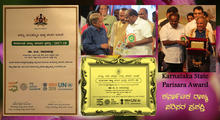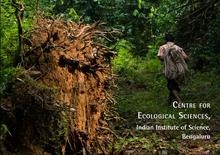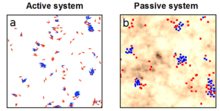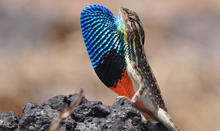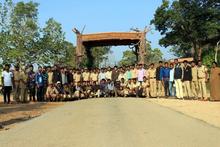Latest Updates
Second Annual DST-SERB sponsored School on Chemical Ecology
Wed, 2018-05-16 10:25The Centre for Ecological Sciences at the Indian Institute of Science, Bangalore, will conduct the second annual DST-SERB sponsored School on Chemical Ecology, an intensive two-week-long course to provide an insight into state-of-the-art research areas of Chemical Ecology, with a special emphasis on research on animal venoms and poisons, and plant–animal interactions. Twenty-five young researchers, including masters students, PhD students, postdoctoral fellows and young faculty members, will be selected at the national level.
CES Brochure 2018
Sat, 2018-04-21 11:37CES has come up with a brochure that summarises all the research work carried out by faculty members, students and staff.
Dr Kartik Sunagar at Centre for Ecological Sciences has been awarded the prestigious Ramanujan Fellowship by SERB/DST.
Thu, 2018-04-19 09:28Dr Kartik Sunagar at Centre for Ecological Sciences has been awarded the prestigious Ramanujan Fellowship by SERB/DST.
Kartik Sunagar is an evolutionary biologist looking at mechanisms and evolution of venoms across taxa in the animal kingdom. His website https://www.venomicslab.com/ has more details of his work.
Internet based Course – Environment Management (XVI session), Sept-Dec 2018
Mon, 2018-04-02 17:09Internet based Course – Environment Management (XVI session), Sept-Dec 2018. For details: http://ces.iisc.ac.in/TVR/TVR_cce_Announce_EM-23March2018_REV.pdf
Open Day at CES on Saturday 10th March 2018
Fri, 2018-03-16 14:48Photo Credit: Viraj Torsekar
On Open Day, CES students, faculty and staff came together to put up fun-filled displays and activities showcasing research in the department as well illustrating broader principles in ecology and evolution.
With live exhibits, videos, movie screening, posters, nature walks and, most importantly, games, the public could experience diverse facets of ecology and evolution.
CES Welcomes Applications for the PhD program
Fri, 2018-03-16 12:35Helping on the move: A theoretical study shows that mobility of organisms can promote cooperation.
Tue, 2018-01-23 11:33Previous studies have argued that movement of organisms typically does not favour animals helping or cooperating each other. Therefore, in species that exhibit collective movement and fission-fusion among groups, cooperation is considered unlikely to occur. In a recent paper published in PLoS Computational Biology, Jaideep Joshi (PhD student), Vishwesha Guttal and collaborators from Germany and USA challenge this common perception.
Fan-throated lizards of India are a highly diverse group with at least 15 species, possibly caused by climatic shifts around 8–5 million years ago.
Wed, 2017-12-27 16:30Image credit: Deepak Veerappan
Deepak. V (a postdoc) and Praveen Karanth show that fan-throated lizards consist of at least 15 species, with much of the diversification dating back to 8–5 million years and possibly caused by climatic shifts in India in that period. This is one of the few studies that establishes a link between climate change and adaptation in the Indian subcontinent. The study also highlights the importance of the dry zone as centers of biodiversity.
CES and Kalinga Institute conduct a scientific training on snake rescue and snakebite management for the Karnataka Forest Department
Fri, 2017-12-22 13:01By Senji Laxme R R
The Evolutionary Venomics Lab (www.venomicslab.com) led by Kartik Sunagar at the Centre for Ecological Sciences, IISc, in association with Kalinga Institute conducted a one-day workshop on snake identification, rescue and bite management for the representative divisions of the Karnataka Forest Department.

